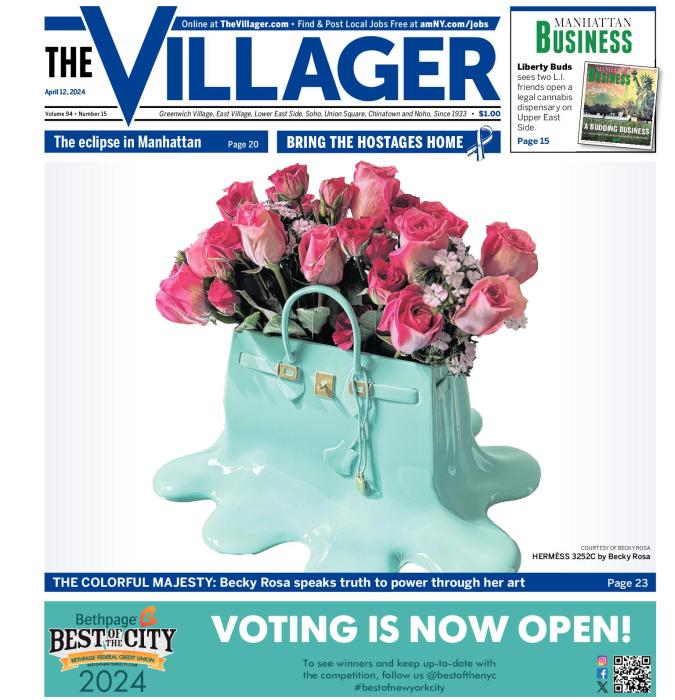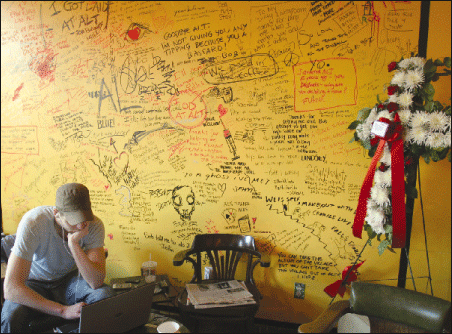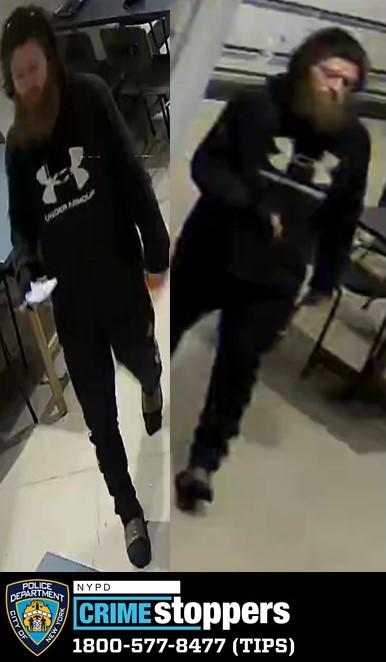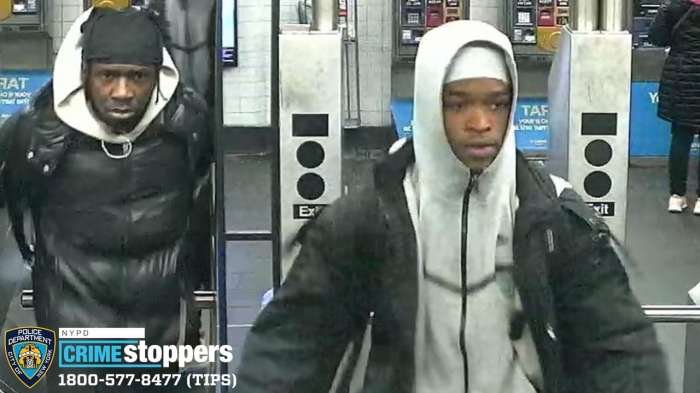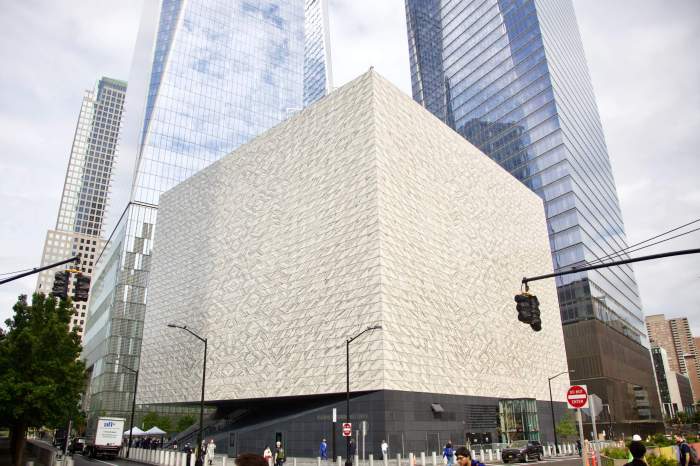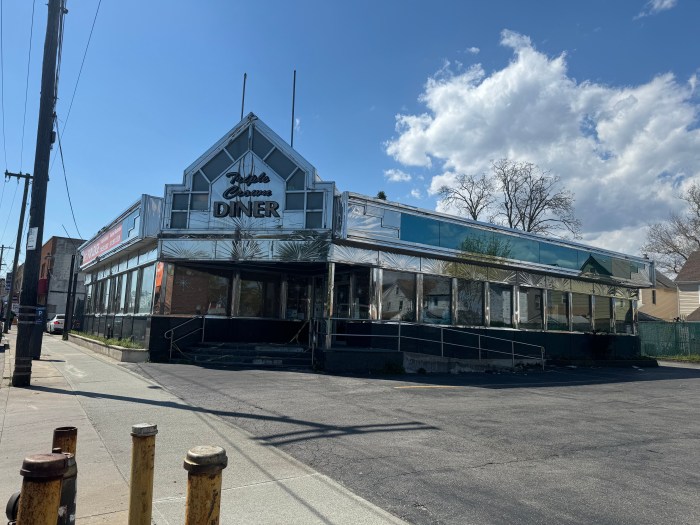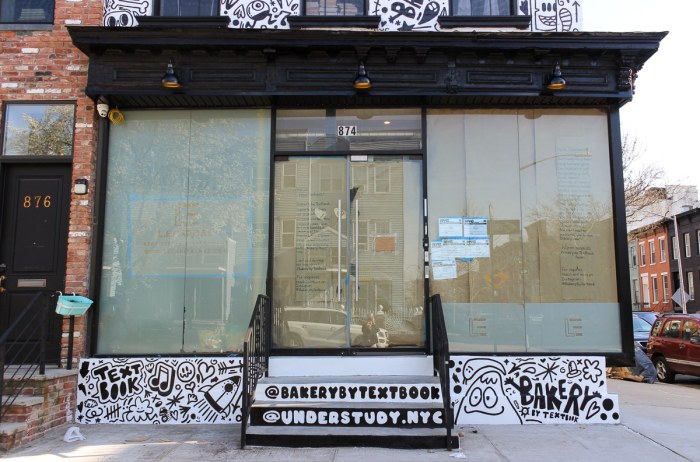By Julie Shapiro
If the walls are any indication, New Yorkers are going to miss alt.coffee.
The Lower East Side coffee shop recently closed. At a closing party, owner Nick Bodor gave attendees permanent markers and free rein on a sunflower-yellow wall. Longtime patrons scrawled goodbyes and sketched memories, displaying the quirky variety that gave alt its distinct personality.
“Dear alt, You were the grimey [sic] heartbeat of Avenue A,” read one message. “I shall miss you.”
The ragtag coffee shop, known for its relaxed-yet-edgy atmosphere and remarkably dirty bathroom, will not disappear entirely. It will reopen as Hopscotch, a kid-friendly cafe, under Bodor and several new investors. Bodor, struggling against rent and insurance increases, hopes Hopscotch will turn a profit.
“It’s tough,” Bodor said before the closing. “This is my first business…. I’m glad we’re keeping it, at least.”
Alt’s patrons were less than thrilled by the change.
“Replacing alt with ‘Hopscotch,’ NYC has lost its edge,” patron Kate Livesey wrote on the memorial wall.
Musician Scotty Spear, who frequented alt for nearly 10 years, agreed with that sentiment. He stopped by alt on a recent afternoon to check his e-mail, in between gigs doing “main-stage sound work” on cruise ships.
“Alt is an oasis from all the gentrification,” Spear said. “You feel like you’re hanging out in someone’s garage.”
Imagining Hopscotch, he shook his head.
“The edge is gone,” he said. “It’ll be too polished.”
When Bodor opened alt in 1995, his goal was to “create a place where I wanted to hang out,” he said. “It’s people’s living rooms.” Since many of the customers lived in cramped apartments, alt became a place to relax and socialize, a home away from home.
A customer named Blair was particularly grateful for alt’s refuge. On the memorial wall, he wrote, “Thanks for keeping me from killing my roommates!!!”
To transform alt into Hopscotch, Bodor will make cosmetic changes, including replacing the furniture, redoing the floor and fixing up the bathroom. He will also extend the menu by offering healthy, organic food, including soups, sandwiches and salads. The coffee will not change, and neither will the staff.
“We want to keep the Downtown vibe,” Bodor said. “Kids are in bed by 8,” but Hopscotch will stay open later and Bodor hopes to retain his regulars.
Bodor also plans to keep playing indie rock music.
“It’s still the East Village, even if you have kids,” Bodor said. “I like the idea of exposing people to bands they haven’t heard before.” Bodor promises he won’t play techno or heavy-metal music at Hopscotch — and definitely no Raffi (the “New Age Mr. Rogers”).
One of alt’s most devoted fans was Angeli, who doesn’t believe in last names. She came to alt every day.
“It’s a fabulous place to think, dream, work, meditate,” Angeli said, sipping a mug of aromatic tea. “It’s very stimulating.”
The key to alt’s success, Angeli said, is balance. Alt is neither too big nor too small, it is smart and hip, yet not pretentious, and it attracts a freethinking crowd.
“The government ought to subsidize places like this for the intellectual vigor of the city,” Angeli said. “It’s been like home.”
Alt wasn’t always so peaceful. Since Tompkins Square Park is right across the street, alt’s single bathroom — painted black, stacked with discarded computers and covered in graffiti — became a popular place for drug users to shoot up.
“We were constantly kicking people out,” Bodor said. “It’s a battle between us and the users.”
Junkies have recently grown scarcer as the neighborhood gentrified.
“It’s still around,” Bodor said, “but it’s nowhere near as prevailing.”
Alt was also known as one of the neighborhood’s first Internet cafes, starting back when the Internet was all text-based and “www” didn’t even exist yet. Alt later became one of the first places in New York to have wireless Internet, which now comes free with a cup of coffee.
“It’s so wild to see how fast things change,” Bodor said. Hopscotch will keep three of alt’s dozen computers, and will continue offering wireless Internet.
The neighborhood has also changed in the 12 years since alt opened.
“It was always a gritty, marginal neighborhood,” Bodor said. “It was fun — anyone could walk in the door. It’s becoming more sterile.”
Bodor co-owns other neighborhood businesses, including The Library bar on Avenue A (of which David McWater, chairperson of Community Board 3, is a co-owner), and Cake Shop on Ludlow St., a cafe, record store and rock venue.
Bodor and his wife, Judy, also own Locks N Lads on E. Seventh St., the business that gave them the idea for Hopscotch. Locks N Lads is a kid-friendly hair salon that looks after children while their parents get their hair cut. The year-old salon — which Judy called “successful” — also hosts birthday parties and story-time events.
“The hair salon made us realize that there’s nothing in the neighborhood for kids,” Judy said. Hopscotch will rent out the back room for birthday parties, and may also offer guitar lessons.
